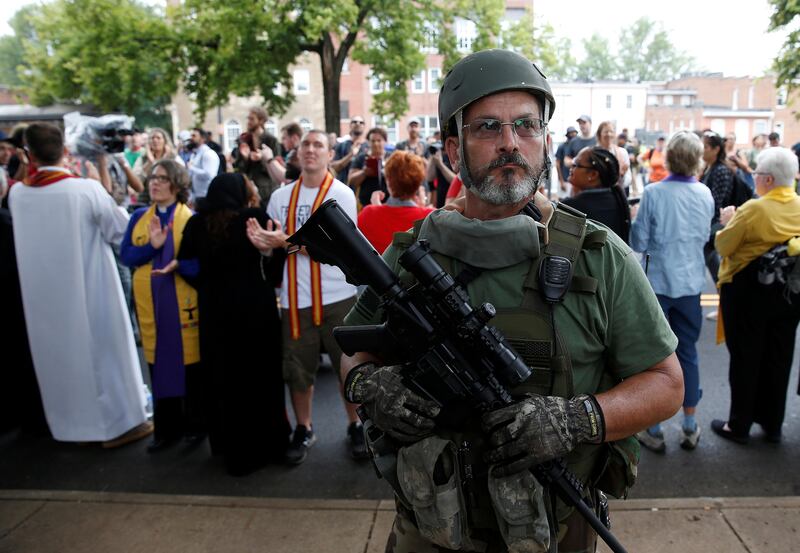The recent "unite the right" rally that descended into chaos in Virginia brought to light many issues. White nationalists, supremacists, neo-Nazis, anti-Semites and right-wing groups joined forces to demonstrate against a vote by the city's government to remove a statue of a confederate general from a local park. Shocking and violent scenes ensued as an Ohio man rammed a car into counter-protesters, killing a 32-year-old woman and injuring 19 others. Many have deplored the fact that the car-ramming incident was not termed an act of terror, as it would certainly have been had an Islamic extremist been at the wheel, while US president Donald Trump came under fire for stopping short of condemning the supremacists.
Fine lines have been blurred in the process. The nuance, for instance, between the legitimate right to protest and when no limits on freedom of speech allow for intimidating or frightening behaviour. The “white” supremacists at the rally were heavily armed and looked like they were ready for war.
What is the difference between white nationalism and Islamist extremism? It could be argued that both thrive equally on contempt for "the other", deemed incompatible with an ideology upheld as the ultimate compass for what is good or bad. ISIL terrorists rammed vehicles into their victims in Brussels, Berlin and London. James Fields did the same in Virginia. ISIL believes its enemies must be removed from existence. The Ku Klux Klan feels the same.
Both ideologies, hiding behind the mask of dogma and absolutist discourse, are fuel for extremist thinking and behaviour that will inevitably spill over into violence. This inevitability is the essence of terrorism.
The difference is that white supremacists feel it is appropriate to gather together to voice their warped thinking, while conveniently hiding behind the protective cloak of the rule of law in countries like the United States, which they themselves are willing to subvert with violent actions against those they disagree with.
Their tiki torches may be fueled by citronella but their ideas are fueled by hate, & have no place in civil society. https://t.co/himqTMBQnH
— Senator Hatch Office (@senorrinhatch) August 12, 2017
We have been conditioned to take even a single Muslim extremist as a possible terrorist threat, but only fear the reprisals of white supremacists when they gather in large numbers. As a result, all Muslims, by association, are tainted. It is unlikely that the deadly actions in Virginia by one man will mean that all white people will be treated in the same way. This hypocrisy is at the heart of the troubled racial and ethnic relations in America today. It breeds more and more resentment, which, in turn, gives more room for extremists to maneouvre and promote their hatred.
Read more:
[ Assad finds fan base among white supremacists in Charlottesville ]
[ Trump is not solely to blame for racist attacks ]
[ America lurches towards a dark form of nationalism ]





